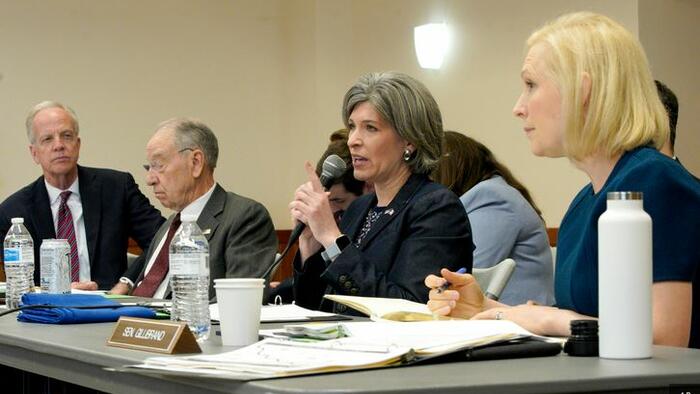


Authored by Lars Erik Schönander via RealClearScience,
Congress has an opportunity to fix federal government policies on science commercialization. Last week, House Committee on Small Business Chairman Roger Williams (R-Texas) took an important step to that end, introducing a companion bill to the INNOVATE Act, which Senator Joni Ernst (R-IA) introduced this year as Chair of the Senate Small Business Committee. Williams's bill could help reform the Small Business Innovation Research program and help nurture the next American tech giants.
Congress established the SBIR program in 1982 to commercialize science and turn startups into major companies. It can tout among its success stories Qualcomm, ViaSat, AeroVironment, and Anduril, all of which used SBIR funding to grow. The INNOVATE Act would reauthorize the SBIR program, which is due to expire at the end of the fiscal year, while strengthening commercialization requirements, improving the due diligence process for SBIR awardees to minimize malign foreign influence in the program, and attracting new entrants.
As part of the SBIR program’s previous reauthorization in 2022, Congress helped address serious national security flaws in the program. In 2021, the Pentagon found that multiple people receiving SBIR funding through the Department of Defense had then transferred the results of their research to Chinese academia and industry. The 2022 reauthorization addressed this problem by requiring agencies with SBIR programs to establish due diligence programs to ensure SBIR awards don’t go to companies with malign foreign ties. But other problems with the SBIR program remain, which the INNOVATE Act would solve.
First, the legislation would tighten benchmarks and impose a $75 million lifetime cap on SBIR awards, which would help prevent companies from treating the SBIR program as a perpetual revenue source. The INNOVATE Act targets commercialization problems that government agencies and independent analysts have documented for years. The Government Accountability Office and outside researchers have found that a few companies receive disproportionate SBIR funding while being worse at commercialization compared to their peers. The new standards aim to redirect awards toward companies that intend to graduate from the SBIR program.
Second, the bill enhances the SBIR program’s due diligence process to ensure that SBIR award winners are not connected to adversarial entities. The Senate Small Business Committee has found that companies with ties to foreign adversaries have received SBIR awards, even after the new due diligence requirements were enacted. Strengthening the due diligence process would ensure that such national security breaches don’t happen again.
Third, the INNOVATE Act aims to attract new entrants and help the best companies cross the "valley of death”— the funding gap that companies with new technologies face when transitioning research from an idea to a product. The bill would create an easier path to enter the program through a one-time SBIR award focused on commercialization and would create a transition-focused funding vehicle in DoD. These “Strategic Breakthrough Funding awards” would allow DoD to award up to $30 million to small businesses that received previous SBIR awards, but need funding to mass-produce their technology.
Representative Williams’s version of the INNOVATE Act makes a few key changes to the Senate version. The commercialization language in the House version is weaker than the Senate version. The $75 million SBIR award cap remains, but the House bill creates a waiver system for companies with a national security justification to keep receiving awards. The agency director overseeing each SBIR program would approve these waivers. The House version also does not contain the language to strengthen the commercialization standards.
While tracking waivers in the annual congressional SBIR report is a smart move, the Small Business Administration should also flag waived companies in the SBIR database it maintains. This would let the public and stakeholders track waiver recipients more effectively. It will make it easier to see if multiple award winners still participate in the SBIR program even after the reforms.
Finally, the House version broadens the Strategic Breakthrough Funding program beyond the Pentagon. While the Senate restricts the program to DoD, the House allows any agency with an annual SBIR program budget of over $100 million to make commercialization-focused SBIR awards. This would allow agencies such as the Department of Energy or the National Institutes of Health to participate. However, the eligible activities may need expansion to cover energy and health startups' business needs, since the current language is focused on defense.
With the release of a House companion to the INNOVATE Act, Congress is closer to reauthorizing the SBIR program before it expires at fiscal year's end. The SBIR program remains a powerful tool for commercializing scientific research. Congress shouldn't waste this opportunity to make the program even stronger.
